Jennifer Moore's Blog, page 2
March 22, 2015
Some business-y things
Since Miss Burton Unmasks a Prince comes out soon, (10 days, but who's counting?) we have a few things going on...
 Thursday, April 2, 4-6 pm, (Mtn time)Stacy Henrie's book online launch party for "A Hope Remembered" I'll be a guest author, and she always does fun stuff, plus, her books are swoony. It will be super!
Thursday, April 2, 4-6 pm, (Mtn time)Stacy Henrie's book online launch party for "A Hope Remembered" I'll be a guest author, and she always does fun stuff, plus, her books are swoony. It will be super!
Saturday, April 4 I'll be at the Ft Union Deseret Book with pen in hand, masquerade masks, and copies of Miss Burton. 4-5:15.
Then, the same day, Ladies' Night at the University Village Deseret Book 6-8.
And...April 8, 12-2 pm, I'm having an online party of my own. And hope y'all will be there--typing away with me. We'll have giveaways, guest authors and oh so much virtual fun.
Then, of course, the highlight of the year is the LDStorymakers Conference May 15-16. http://storymakersconference.myshopif...
And The Teen Writers' Conference June 13. http://www.teenwritersconference.org/
I have no idea how to make those into links, so if you want to know more about the conferences, you'll have to copy and paste.
So, that's all for now. There are a bunch of fun things in the works, and keep your eyes open for some fun promotional pics.
 Thursday, April 2, 4-6 pm, (Mtn time)Stacy Henrie's book online launch party for "A Hope Remembered" I'll be a guest author, and she always does fun stuff, plus, her books are swoony. It will be super!
Thursday, April 2, 4-6 pm, (Mtn time)Stacy Henrie's book online launch party for "A Hope Remembered" I'll be a guest author, and she always does fun stuff, plus, her books are swoony. It will be super!Saturday, April 4 I'll be at the Ft Union Deseret Book with pen in hand, masquerade masks, and copies of Miss Burton. 4-5:15.
Then, the same day, Ladies' Night at the University Village Deseret Book 6-8.
And...April 8, 12-2 pm, I'm having an online party of my own. And hope y'all will be there--typing away with me. We'll have giveaways, guest authors and oh so much virtual fun.
Then, of course, the highlight of the year is the LDStorymakers Conference May 15-16. http://storymakersconference.myshopif...
And The Teen Writers' Conference June 13. http://www.teenwritersconference.org/
I have no idea how to make those into links, so if you want to know more about the conferences, you'll have to copy and paste.
So, that's all for now. There are a bunch of fun things in the works, and keep your eyes open for some fun promotional pics.
Published on March 22, 2015 17:59
November 15, 2014
Lady Emma and I are hitting the road
I have a few signings in November and December. Just in case you wanna come see me and Lady Emma.

November 15--Logan Deseret Book 12-2 With Carla Kelly (I know, I'm thrilled about it too!!!)
November 22--Ogden Deseret Book 11-1 With Carla Kelly again
November 28 (Black Friday) 9-11 Seagull Book in St. George
December 13--Seagull Book in Centerville with Margot Hovley (Because she is amazing)
Those are the firm dates so far, and I'd love to see y'all there!

November 15--Logan Deseret Book 12-2 With Carla Kelly (I know, I'm thrilled about it too!!!)
November 22--Ogden Deseret Book 11-1 With Carla Kelly again
November 28 (Black Friday) 9-11 Seagull Book in St. George
December 13--Seagull Book in Centerville with Margot Hovley (Because she is amazing)
Those are the firm dates so far, and I'd love to see y'all there!
Published on November 15, 2014 06:56
November 2, 2014
Inspiration--myth or reality?
Being a writer is tough, and as much as we love being part of a community and having the inspiration of other writers, it can be intimidating being around so many successful people.
I always feel completely overwhelmed by all the great ideas people have, and wonder where they find their inspiration. It just seems to come so easily for them. But stories and plots and characters don’t come easy for me--at all. I feel like every single word has to be grabbed and wrenched from the depths of my soul after hours of agonizing work and self-doubt, and it gives me this feeling of inferiority, I mean, everyone else just sits down and the words flow, right?
Nope. Even the most creative, the most driven and the most well-known writers have to work at it. "Inspiration” is something a person finds after a lot of hard work.
I liked this article a lot:
Writers on Writing: The Myth of Inspiration Don't Hold Your Breath Waiting to Be Inspired to Write
By Richard Nordquist Grammar & Composition Expert
Are you the sort of writer who has to be in just the right mood before the words start to flow? Professional writers say that waiting for inspiration to strike is usually just a striking waste of time.
In one episode of Bill Watterson's sorely missed comic strip, Hobbes asks Calvin if he's come up with an idea for a story yet."No," the boy says, "I'm waiting for inspiration. You can't just turn on creativity like a faucet. You have to be in the right mood.""What mood is that?" Hobbes asks as he joins Calvin in the sandbox.
Without raising his head the boy replies, "Last-minute panic."
The truth is, inspiration is a mood that few of us can afford to wait for or depend on. Not surprisingly, professional writers are generally reluctant to give much credit to the power of inspiration (a word that comes from the Latin verb inspirare, "to breathe into"). Most will tell you that the process of writing follows Thomas Edison's formula: "Of inspiration one percent; of perspiration, ninety nine."
Next time you find yourself putting off a writing project until the right mood strikes, consider what these 12 authors have to say about inspiration.· "You can't wait for inspiration. You have to go after it with a club."
(Jack London)
· "Don't wait for inspiration, but sit down quietly, and begin; once you have gotten to work, shut up, even to yourself, about writer's block; use your imagination, and keep working. . . ."A homely example that a student gave me: she said that using discipline and not waiting for inspiration feels like someone who owns a bucket with which she hopes to catch rainwater. If she went out with the bucket only when she knew it was actually raining, she would certainly get some water sometimes. But if she goes out daily no matter what the weather she can catch the rain that falls unexpectedly.
"The curious truth . . . is that the writer who goes out with the bucket daily seems to provoke the rain."
(Leonard Wolf, quoted by Naomi Wolf in The Treehouse: Eccentric Wisdom From My Father on How to Live, Love, and See, Simon and Schuster, 2005)
· "You can't rely on inspiration. I don't even believe in inspiration. I just believe in working. Work generates work. What frustrates me horribly is not knowing what I'm going to do next. And so you force something to happen. . . . You can't sit around thinking. You have to sit around working."
(David Long, interviewed by Linda B. Swanson-Davies in The Glimmer Train Guide to Writing Fiction: Inspiration and Discipline, Writers Digest Books, 2007)
· "Better beware of notions like genius and inspiration. They are a sort of magic wand and should be used sparingly by anybody who wants to see things clearly."(José Ortega y Gasset, Notes on the Novel, 1925)
· "Had I mentioned to someone around 1795 that I planned to write, anyone with any sense would have told me to write for two hours every day, with or without inspiration. Their advice would have enabled me to benefit from the ten years of my life I totally wasted waiting for inspiration."
(Stendhal [Marie-Henri Beyle], quoted by Enrique Vila-Matas in Bartleby & Co, New Directions, 2004)
· "I can't explain inspiration. A writer is either compelled to write or not. And if I waited for inspiration I wouldn't really be a writer."
(Toni Morrison, quoted in Time magazine, January 21, 1998)
· "I have learned, as has many another better writer, to summon inspiration to my call as soon as I begin my day's stint, and not to hang around waiting for it. Inspiration is merely a pretty phrase for the zest to work. And it can be cultivated by anyone who has the patience to try. Inspiration that will not come at its possessor's summons is like a dog that cannot be trained to obey. The sooner both are gotten rid of, the better."
(Albert Payson Terhune, Writer's Digest, June 1930)
· "All this about inspiration. . . . I think writing is mainly work. Like a mechanic's job. A mechanic might as well say he was waiting for inspiration before he greased your car because if he didn't feel just right he'd miss a lot of the grease points, that he had to feel right up to it."
(E.B. White in an interview with Robert Van Gelder, The New York Times, August 2, 1942)
· "There are those . . . who think that the man who works with his imagination should allow himself to wait till--inspiration moves him. When I have heard such doctrine preached, I have hardly been able to repress my scorn. To me it would not be more absurd if the shoemaker were to wait for inspiration, or the tallow-chandler for the divine moment of melting."
(Anthony Trollope, An Autobiography, 1883)
· "What Romantic terminology called genius or talent or inspiration is nothing other than finding the right road empirically, following one's nose, taking shortcuts."
(Italo Calvino, "Cybernetics and Ghosts," November 1969)
· "I've always disliked words like 'inspiration.' Writing is probably like a scientist thinking about some scientific problem or an engineer about an engineering problem."(Doris Lessing)
· "And I think what I've always recognized about writing is that I don't put much value in so-called inspiration. The value is in how many times you can redo something."(John Irving, National Book Award Interview, June 3, 2005)
Admittedly, not all writers are quite so skeptical about the power of inspiration. Novelist William Faulkner once said, "I only write when I am inspired." But then he added, "Fortunately I am inspired at nine o'clock every morning." ******
That’s the part of writing that people don’t tell you about—all the hard work. It’s an art, and we want it to just flow from our imagination through our fingers and onto the paper, but truthfully there’s a lot that has to happen in between.
This is a quote by my friend, Dan Wells:
"Everyone has an idea for a book. Everyone says that one day they're going to sit down and write the Great American Novel. The difference between writers and everyone else is that writers actually do it."
He uses a phrase a lot BIC HOK (Butt in chair, Hands on keyboard)
Anne Lamott says don’t be afraid to write a crappy first draft, and Norah Roberts says you can’t fix a blank page.
So, all you writers out there, stop reading this post, open up your document and DO IT! Stop hoping for inspiration. Don’t wait for the muse to strike. You need to get out there and find her!
BIC HOK
I always feel completely overwhelmed by all the great ideas people have, and wonder where they find their inspiration. It just seems to come so easily for them. But stories and plots and characters don’t come easy for me--at all. I feel like every single word has to be grabbed and wrenched from the depths of my soul after hours of agonizing work and self-doubt, and it gives me this feeling of inferiority, I mean, everyone else just sits down and the words flow, right?
Nope. Even the most creative, the most driven and the most well-known writers have to work at it. "Inspiration” is something a person finds after a lot of hard work.
I liked this article a lot:
Writers on Writing: The Myth of Inspiration Don't Hold Your Breath Waiting to Be Inspired to Write
By Richard Nordquist Grammar & Composition Expert
Are you the sort of writer who has to be in just the right mood before the words start to flow? Professional writers say that waiting for inspiration to strike is usually just a striking waste of time.
In one episode of Bill Watterson's sorely missed comic strip, Hobbes asks Calvin if he's come up with an idea for a story yet."No," the boy says, "I'm waiting for inspiration. You can't just turn on creativity like a faucet. You have to be in the right mood.""What mood is that?" Hobbes asks as he joins Calvin in the sandbox.
Without raising his head the boy replies, "Last-minute panic."
The truth is, inspiration is a mood that few of us can afford to wait for or depend on. Not surprisingly, professional writers are generally reluctant to give much credit to the power of inspiration (a word that comes from the Latin verb inspirare, "to breathe into"). Most will tell you that the process of writing follows Thomas Edison's formula: "Of inspiration one percent; of perspiration, ninety nine."
Next time you find yourself putting off a writing project until the right mood strikes, consider what these 12 authors have to say about inspiration.· "You can't wait for inspiration. You have to go after it with a club."
(Jack London)
· "Don't wait for inspiration, but sit down quietly, and begin; once you have gotten to work, shut up, even to yourself, about writer's block; use your imagination, and keep working. . . ."A homely example that a student gave me: she said that using discipline and not waiting for inspiration feels like someone who owns a bucket with which she hopes to catch rainwater. If she went out with the bucket only when she knew it was actually raining, she would certainly get some water sometimes. But if she goes out daily no matter what the weather she can catch the rain that falls unexpectedly.
"The curious truth . . . is that the writer who goes out with the bucket daily seems to provoke the rain."
(Leonard Wolf, quoted by Naomi Wolf in The Treehouse: Eccentric Wisdom From My Father on How to Live, Love, and See, Simon and Schuster, 2005)
· "You can't rely on inspiration. I don't even believe in inspiration. I just believe in working. Work generates work. What frustrates me horribly is not knowing what I'm going to do next. And so you force something to happen. . . . You can't sit around thinking. You have to sit around working."
(David Long, interviewed by Linda B. Swanson-Davies in The Glimmer Train Guide to Writing Fiction: Inspiration and Discipline, Writers Digest Books, 2007)
· "Better beware of notions like genius and inspiration. They are a sort of magic wand and should be used sparingly by anybody who wants to see things clearly."(José Ortega y Gasset, Notes on the Novel, 1925)
· "Had I mentioned to someone around 1795 that I planned to write, anyone with any sense would have told me to write for two hours every day, with or without inspiration. Their advice would have enabled me to benefit from the ten years of my life I totally wasted waiting for inspiration."
(Stendhal [Marie-Henri Beyle], quoted by Enrique Vila-Matas in Bartleby & Co, New Directions, 2004)
· "I can't explain inspiration. A writer is either compelled to write or not. And if I waited for inspiration I wouldn't really be a writer."
(Toni Morrison, quoted in Time magazine, January 21, 1998)
· "I have learned, as has many another better writer, to summon inspiration to my call as soon as I begin my day's stint, and not to hang around waiting for it. Inspiration is merely a pretty phrase for the zest to work. And it can be cultivated by anyone who has the patience to try. Inspiration that will not come at its possessor's summons is like a dog that cannot be trained to obey. The sooner both are gotten rid of, the better."
(Albert Payson Terhune, Writer's Digest, June 1930)
· "All this about inspiration. . . . I think writing is mainly work. Like a mechanic's job. A mechanic might as well say he was waiting for inspiration before he greased your car because if he didn't feel just right he'd miss a lot of the grease points, that he had to feel right up to it."
(E.B. White in an interview with Robert Van Gelder, The New York Times, August 2, 1942)
· "There are those . . . who think that the man who works with his imagination should allow himself to wait till--inspiration moves him. When I have heard such doctrine preached, I have hardly been able to repress my scorn. To me it would not be more absurd if the shoemaker were to wait for inspiration, or the tallow-chandler for the divine moment of melting."
(Anthony Trollope, An Autobiography, 1883)
· "What Romantic terminology called genius or talent or inspiration is nothing other than finding the right road empirically, following one's nose, taking shortcuts."
(Italo Calvino, "Cybernetics and Ghosts," November 1969)
· "I've always disliked words like 'inspiration.' Writing is probably like a scientist thinking about some scientific problem or an engineer about an engineering problem."(Doris Lessing)
· "And I think what I've always recognized about writing is that I don't put much value in so-called inspiration. The value is in how many times you can redo something."(John Irving, National Book Award Interview, June 3, 2005)
Admittedly, not all writers are quite so skeptical about the power of inspiration. Novelist William Faulkner once said, "I only write when I am inspired." But then he added, "Fortunately I am inspired at nine o'clock every morning." ******
That’s the part of writing that people don’t tell you about—all the hard work. It’s an art, and we want it to just flow from our imagination through our fingers and onto the paper, but truthfully there’s a lot that has to happen in between.
This is a quote by my friend, Dan Wells:
"Everyone has an idea for a book. Everyone says that one day they're going to sit down and write the Great American Novel. The difference between writers and everyone else is that writers actually do it."
He uses a phrase a lot BIC HOK (Butt in chair, Hands on keyboard)
Anne Lamott says don’t be afraid to write a crappy first draft, and Norah Roberts says you can’t fix a blank page.
So, all you writers out there, stop reading this post, open up your document and DO IT! Stop hoping for inspiration. Don’t wait for the muse to strike. You need to get out there and find her!
BIC HOK
Published on November 02, 2014 17:44
September 19, 2014
Blog Hop
Heather Moore tagged me in a blog hop--Here's the link to her post: http://mywriterslair.blogspot.com/201...
Heather's probably one of the most savvy and talented and humble people I know. I love her historical books, but I love her contemporary romance even more. And maybe my very favorite thing she does is the Timeless Romance Anthologies. They are TO DIE FOR! You can get them on kindle for just pennies, and they're short, romantic stories, all clean and all yummy and heart melty and just about the greatest thing ever. My favorite thing is to read them in the bath. Each one is about bath length. Or if you have a little time before dinner, or at soccer practice, or whenever you just want to fall in love and sigh, and have your heartbeat flutter, but don't have time for an entire novel.
That being said, it brings me to the first question:
1. What are you working on?It seems that during the last few weeks, I've gotten in a little over my head. I'm about 2/3 done with the Jamaican book that's in the Regency line for Covenant. I like it a lot. It's a little grittier than anything I've done before, but it is touching and there are funny parts, and I love the relationships with some of the secondary characters, which I think makes it richer. Plus, it's a cool setting at an interesting time--Pirates, Slavery, Warships, Sugar Plantation. All fascinating.
My other publisher, The Wild Rose Press and I are working on edits for the very first book I wrote The Sheik's Ruby. It's a contemporary romance, and even though it's been years since I finished it, I still adore the story. Editing takes forever with some editors, and we'll see--I think it will probably come out next Spring.
And...Heather asked me to write a story for the Anthology that comes out April 2015--California Dreaming. It will be a contemporary, which I love, and I could not be more thrilled about it.
2. How does your work differ from others in the same genre?This question is tricky. I think with my Regencies, I try to incorporate as much history as possible, maybe too much, because I'm sort of nerdy. I know it's a turn off to some people who just want to read about balls and peerage and London Seasons, but I like the historical part. I'm not sure if that makes my books unique. I'm certainly not the only person to write Historical Fiction. I like to make sure there's humor--also not unique--and, set each book in a different location in the British Empire. Which is a double-edged sword, because there's a TON of research that goes into each one, but I like readers to feel like they took a trip to a new place, and they learned something new.
3. Why do you write what you do?I write Romance, because I like to read it. And of course I love the history. I think that everyone wonders what it would be like to live in a different time and place, and wonder what they'd be like. I guess there are a lot of other, less awesome reasons. I'd love to just say I write what's in my heart, but that's not entirely true. I also write what my publisher thinks will sell which sucks out some of the magic, doesn't it? And I sometimes write because I don't want to show up at Critique Group with nothing to read. And there are times when I do it because I promised to get it done. But once in awhile, a new idea is pushing inside me and I have to let it out before my brain explodes. That's my favorite reason to write what I do, because sometimes I have to.
4. How does your writing process work?I usually start with a trickle of an idea--a setting, usually--then read a lot. I probably read nearly 50 books as research for each one I write. Some about the history, the setting, novels set in the place, during the time, some involving characters similar to the ones I'm trying to create, some with similar tropes or story lines. And I keep reading them the entire time I'm working on the book, and kind of immerse myself in it. I started working on this Jamaica book in February, and a sprained wrist, son leaving for a mission, and all sorts of other things have slowed me down, and so I keep finding more and more books that relate to the story and read as I go. I have an outline, which is just a jumping off point. The story always takes a different route, and I get feedback every step of the way, revise, adjust, and keep trudging through. I try to do 5000 words a week, but some weeks I do a lot more and some, a lot less. Once I know where the story is going and understand my characters, I can go faster.
Up next on the Blog Hop is Cindy Anderson who writes fun Christian Romance--Rom/Com. I love her and I love her stories. So, click on over and see what Cindy is doing.http://cindyrolandanderson.weebly.com/
Heather's probably one of the most savvy and talented and humble people I know. I love her historical books, but I love her contemporary romance even more. And maybe my very favorite thing she does is the Timeless Romance Anthologies. They are TO DIE FOR! You can get them on kindle for just pennies, and they're short, romantic stories, all clean and all yummy and heart melty and just about the greatest thing ever. My favorite thing is to read them in the bath. Each one is about bath length. Or if you have a little time before dinner, or at soccer practice, or whenever you just want to fall in love and sigh, and have your heartbeat flutter, but don't have time for an entire novel.
That being said, it brings me to the first question:
1. What are you working on?It seems that during the last few weeks, I've gotten in a little over my head. I'm about 2/3 done with the Jamaican book that's in the Regency line for Covenant. I like it a lot. It's a little grittier than anything I've done before, but it is touching and there are funny parts, and I love the relationships with some of the secondary characters, which I think makes it richer. Plus, it's a cool setting at an interesting time--Pirates, Slavery, Warships, Sugar Plantation. All fascinating.
My other publisher, The Wild Rose Press and I are working on edits for the very first book I wrote The Sheik's Ruby. It's a contemporary romance, and even though it's been years since I finished it, I still adore the story. Editing takes forever with some editors, and we'll see--I think it will probably come out next Spring.
And...Heather asked me to write a story for the Anthology that comes out April 2015--California Dreaming. It will be a contemporary, which I love, and I could not be more thrilled about it.
2. How does your work differ from others in the same genre?This question is tricky. I think with my Regencies, I try to incorporate as much history as possible, maybe too much, because I'm sort of nerdy. I know it's a turn off to some people who just want to read about balls and peerage and London Seasons, but I like the historical part. I'm not sure if that makes my books unique. I'm certainly not the only person to write Historical Fiction. I like to make sure there's humor--also not unique--and, set each book in a different location in the British Empire. Which is a double-edged sword, because there's a TON of research that goes into each one, but I like readers to feel like they took a trip to a new place, and they learned something new.
3. Why do you write what you do?I write Romance, because I like to read it. And of course I love the history. I think that everyone wonders what it would be like to live in a different time and place, and wonder what they'd be like. I guess there are a lot of other, less awesome reasons. I'd love to just say I write what's in my heart, but that's not entirely true. I also write what my publisher thinks will sell which sucks out some of the magic, doesn't it? And I sometimes write because I don't want to show up at Critique Group with nothing to read. And there are times when I do it because I promised to get it done. But once in awhile, a new idea is pushing inside me and I have to let it out before my brain explodes. That's my favorite reason to write what I do, because sometimes I have to.
4. How does your writing process work?I usually start with a trickle of an idea--a setting, usually--then read a lot. I probably read nearly 50 books as research for each one I write. Some about the history, the setting, novels set in the place, during the time, some involving characters similar to the ones I'm trying to create, some with similar tropes or story lines. And I keep reading them the entire time I'm working on the book, and kind of immerse myself in it. I started working on this Jamaica book in February, and a sprained wrist, son leaving for a mission, and all sorts of other things have slowed me down, and so I keep finding more and more books that relate to the story and read as I go. I have an outline, which is just a jumping off point. The story always takes a different route, and I get feedback every step of the way, revise, adjust, and keep trudging through. I try to do 5000 words a week, but some weeks I do a lot more and some, a lot less. Once I know where the story is going and understand my characters, I can go faster.
Up next on the Blog Hop is Cindy Anderson who writes fun Christian Romance--Rom/Com. I love her and I love her stories. So, click on over and see what Cindy is doing.http://cindyrolandanderson.weebly.com/
Published on September 19, 2014 08:46
August 13, 2014
I like big boats, and I cannot lie.
What a surprise, Jenny's talking about ships.
Ah yes, I do love me some ships.
When we go on vacation anywhere near an ocean, my family knows they'll be walking around some sort of sailing vessel while I get all excited and use words like "starboard" and "quarterdeck" and "helm." They're pretty good sports.
Last summer, as soon as we landed in London, we dropped off our luggage, and I dragged all those jetlagged boys to see the Cutty Sark

These guys thought the officer's berths were a good spot to take a snooze.


Captain Andrew at the helm.

Anyone know what this is? I'll give ya a hint, it keeps the compass from falling overboard or getting lost or damaged by the water...Anyone? This is the binnacle box. it's right by the helm so the Captain, or the helmsman can make sure the boat's headed in the right direction. No gps, ya know?

We're not done, kiddos! I know it's two in the morning back home, but time to head to the National Maritime Museum! Admiral Horatio Nelson's uniform is in there, and we're not missing that.

 Cool displays, right? Look at the Captain's little itty cabin--it was smaller than a closet. And he got the best quarters on the ship.
Cool displays, right? Look at the Captain's little itty cabin--it was smaller than a closet. And he got the best quarters on the ship.
And we found Admiral Nelson's uniform. The picture isn't great. I blame it on the lighting--and the fact that a six year old took it. Also, I think the Admiral might have worn a smaller size than me. But, I was still star struck and a little choked up when I saw it. What an incredible person.

Do we have time to head to the Naval Academy? I think we do...
Cool painted room, right? Ceremonies and meetings are held here.

But there are wonderful ships to tour in the good old USA, too. How about the Queen Mary?
My kids loved the anti-aircraft guns from WW2. And I had to pretend not to be giddy when I played with them.


Here's the capstan--for winding up the anchor rope. Obviously on a modern ship, it's mechanized instead of turned by men pushing on poles. But nevertheless, one hundred percent awesome.
Alas, a sailor's work is never done--not even at Disneyland. Did you know they have a beautifully preserved American nineteenth century ship, just floating around the lake there? I took the helm for a little while. The ship's bell was used to notify the crew of the time, the watches, as well as any change in the routine. If you heard the bell ringing when it wasn't supposed to, it meant something was up.
The ship's bell was used to notify the crew of the time, the watches, as well as any change in the routine. If you heard the bell ringing when it wasn't supposed to, it meant something was up.

James performed some basic shipboard duties--manning the pump, and LOOK! Another capstan.

 Here are the belaying pins, used to keep the ropes tidy. You could pull one out really quick if you needed the ropes loosed. Or to whack someone with it. Sailors use the term "belay that!" and it means Cut it out! I've used it a few times on my kids.--The term, not the actual pins.
Here are the belaying pins, used to keep the ropes tidy. You could pull one out really quick if you needed the ropes loosed. Or to whack someone with it. Sailors use the term "belay that!" and it means Cut it out! I've used it a few times on my kids.--The term, not the actual pins.
And there you have it, pictures of my handsome boys, some trivia about ships, and me gushing about something I'm passionate about.
I'm off to sing a sea shanty.
Fair winds and following seas!
Ah yes, I do love me some ships.
When we go on vacation anywhere near an ocean, my family knows they'll be walking around some sort of sailing vessel while I get all excited and use words like "starboard" and "quarterdeck" and "helm." They're pretty good sports.
Last summer, as soon as we landed in London, we dropped off our luggage, and I dragged all those jetlagged boys to see the Cutty Sark

These guys thought the officer's berths were a good spot to take a snooze.


Captain Andrew at the helm.

Anyone know what this is? I'll give ya a hint, it keeps the compass from falling overboard or getting lost or damaged by the water...Anyone? This is the binnacle box. it's right by the helm so the Captain, or the helmsman can make sure the boat's headed in the right direction. No gps, ya know?


We're not done, kiddos! I know it's two in the morning back home, but time to head to the National Maritime Museum! Admiral Horatio Nelson's uniform is in there, and we're not missing that.

 Cool displays, right? Look at the Captain's little itty cabin--it was smaller than a closet. And he got the best quarters on the ship.
Cool displays, right? Look at the Captain's little itty cabin--it was smaller than a closet. And he got the best quarters on the ship.And we found Admiral Nelson's uniform. The picture isn't great. I blame it on the lighting--and the fact that a six year old took it. Also, I think the Admiral might have worn a smaller size than me. But, I was still star struck and a little choked up when I saw it. What an incredible person.

Do we have time to head to the Naval Academy? I think we do...
Cool painted room, right? Ceremonies and meetings are held here.

But there are wonderful ships to tour in the good old USA, too. How about the Queen Mary?
My kids loved the anti-aircraft guns from WW2. And I had to pretend not to be giddy when I played with them.


Here's the capstan--for winding up the anchor rope. Obviously on a modern ship, it's mechanized instead of turned by men pushing on poles. But nevertheless, one hundred percent awesome.

Alas, a sailor's work is never done--not even at Disneyland. Did you know they have a beautifully preserved American nineteenth century ship, just floating around the lake there? I took the helm for a little while.
 The ship's bell was used to notify the crew of the time, the watches, as well as any change in the routine. If you heard the bell ringing when it wasn't supposed to, it meant something was up.
The ship's bell was used to notify the crew of the time, the watches, as well as any change in the routine. If you heard the bell ringing when it wasn't supposed to, it meant something was up.
James performed some basic shipboard duties--manning the pump, and LOOK! Another capstan.


 Here are the belaying pins, used to keep the ropes tidy. You could pull one out really quick if you needed the ropes loosed. Or to whack someone with it. Sailors use the term "belay that!" and it means Cut it out! I've used it a few times on my kids.--The term, not the actual pins.
Here are the belaying pins, used to keep the ropes tidy. You could pull one out really quick if you needed the ropes loosed. Or to whack someone with it. Sailors use the term "belay that!" and it means Cut it out! I've used it a few times on my kids.--The term, not the actual pins.And there you have it, pictures of my handsome boys, some trivia about ships, and me gushing about something I'm passionate about.
I'm off to sing a sea shanty.
Fair winds and following seas!
Published on August 13, 2014 12:02
June 15, 2014
Organization is not my thing--but I'm trying.
My Project Notebook is probably the most important—not to mention the funnest—part of writing a book.I’ve changed my approach over time, adapted it little by little to find out what works for me, and this is what I’ve come up with. The basic idea comes from Nancy Campbell Allen’s project notebook—here’s the link where she explains how she does it. You can even order her pages and print out a million of them:https://www.facebook.com/l.php?u=https%3A%2F%2Fwww.etsy.com%2Fshop%2FWritingOrganized%3Fref%3Dshop_sugg&h=LAQFOBor1. But I’ve changed it to what works for me—she’s much more organized, and an outliner, and I’m sort of a mess.
So, first of all, my notebook has the cover—I try to make it something that sets the mood of the story, so as soon as I pick it up, I’ve got the right frame of mind. For some reason, this is a huge deal to me, just getting the feel of the story. And I do it a lot through pictures and colors.
This example is from a book I wrote about Spain. The characters—I love finding headshots of my characters—Sidney and Emma are on there, and a map of Cadiz during the Napoleonic wars, and then I also have a picture of the city. I love the cool architecture of southern Spain, and this city surrounded by water inspired this story, so I like to have that picture right away when I pick up the notebook.And as a side, I love the little rings instead of a heavy binder so I can roll it up, fold it back, whatever. This baby will be in my purse, or my computer bag or my car or wherever I am for the next 6 or so months, so I like it to be flexible instead of a solid heavy binder. Of course there’s a pink bow—this is a romance with a naïve, and cheerful main character, so I like that to remind me of the mood I’m setting. This notebook is from a short story I did for a Series set in a fictional town—Lobster Cove. And it was contemporary, so I didn’t need to do tons of research. I kept everything in this little notebook I ordered from zazzle.com. That’s a map of Maine sticking out of it, and I have a postcard book that I kept with it.
Of course there’s a pink bow—this is a romance with a naïve, and cheerful main character, so I like that to remind me of the mood I’m setting. This notebook is from a short story I did for a Series set in a fictional town—Lobster Cove. And it was contemporary, so I didn’t need to do tons of research. I kept everything in this little notebook I ordered from zazzle.com. That’s a map of Maine sticking out of it, and I have a postcard book that I kept with it.
 Alrighty, what’s inside?These are the tabs I use—I know there are more that would be smart to include, but this works for me. I have Brainstorm, Outline, Character, Running Edit, Research. I like to keep everything together. And I usually don’t start my notebook until I’ve done a whole lotta research and made outline notes and brainstormed plot and characters, so it’s nice that I can just take it out of wherever I’ve written it and stick it in here.
Alrighty, what’s inside?These are the tabs I use—I know there are more that would be smart to include, but this works for me. I have Brainstorm, Outline, Character, Running Edit, Research. I like to keep everything together. And I usually don’t start my notebook until I’ve done a whole lotta research and made outline notes and brainstormed plot and characters, so it’s nice that I can just take it out of wherever I’ve written it and stick it in here.
 Let’s talk
Brainstorm
. I do it everywhere. On napkins, on church programs, whatever…Then I keep all the little scraps of paper and stick them in the brainstorm section of the folder. Even if it doesn’t make sense, or if it’s messy—if nothing else, I can look back and think, “wow, this story was really headed in a different direction…”
Let’s talk
Brainstorm
. I do it everywhere. On napkins, on church programs, whatever…Then I keep all the little scraps of paper and stick them in the brainstorm section of the folder. Even if it doesn’t make sense, or if it’s messy—if nothing else, I can look back and think, “wow, this story was really headed in a different direction…”
 I combine
Outline
and scene tracking in one tab—it just works for me, plus these cute pastel paisley tabs only came with 5 sheets, so I consolidated.I like to have a scene goal—or sometimes it’s a chapter goal, and when I think of something that should happen in that chapter, I stick it on the page. I use the sticky notes because I found myself crossing things out all the time when I changed my mind, and ripping the pages out and starting over. It was a mess. This is messy too, but what can ya do?
I combine
Outline
and scene tracking in one tab—it just works for me, plus these cute pastel paisley tabs only came with 5 sheets, so I consolidated.I like to have a scene goal—or sometimes it’s a chapter goal, and when I think of something that should happen in that chapter, I stick it on the page. I use the sticky notes because I found myself crossing things out all the time when I changed my mind, and ripping the pages out and starting over. It was a mess. This is messy too, but what can ya do?

In this page, I made a diagram of where everyone sat at a dinner party—It’s not pretty, but sometimes you have to see it all laid out for it to make sense.
 Character
—In my Project Notebook, I write pages and pages about each of the main characters—what are their strengths, weaknesses, character flaws? What do they look like? Their goals in life, etc.And I brainstorm things that they might say, or how they might feel in particular situations. Sometimes this is where I get my best ideas for conversations and interactions, so I love to have my notebook with me when I’m at soccer practice or sitting in bed without my computer.As I’ve worked on a series with recurring characters, I’ve found how important it is to have a separate “Character Bible.” This is independent of my notebook, and I record things in here that are going to affect the characters in the next book. Things like, How old was Emma when her father died? Did I mention that in the book before when I talked about her brother? Not in depth character things, just so I don’t have to go back a hundred times and look for the information.
Character
—In my Project Notebook, I write pages and pages about each of the main characters—what are their strengths, weaknesses, character flaws? What do they look like? Their goals in life, etc.And I brainstorm things that they might say, or how they might feel in particular situations. Sometimes this is where I get my best ideas for conversations and interactions, so I love to have my notebook with me when I’m at soccer practice or sitting in bed without my computer.As I’ve worked on a series with recurring characters, I’ve found how important it is to have a separate “Character Bible.” This is independent of my notebook, and I record things in here that are going to affect the characters in the next book. Things like, How old was Emma when her father died? Did I mention that in the book before when I talked about her brother? Not in depth character things, just so I don’t have to go back a hundred times and look for the information.
 I love having pictures in this book. And I add to it all the time.The ARC system at Staples is awesome for this—I’d love to use it for everything in the world, but I don’t. I just use it for my Character Bible. No reason why. It’s just how it is.
I love having pictures in this book. And I add to it all the time.The ARC system at Staples is awesome for this—I’d love to use it for everything in the world, but I don’t. I just use it for my Character Bible. No reason why. It’s just how it is.
 Running Edit
is where I make notes as I go.So, if I change my mind about something as I’m typing, I don’t have to stop my forward momentum and go back and make the butler’s name Miles instead of Hastings, I just make a note and do all that later.This is also where I put my notes I take at Critique Group and things that I know I should change, or check on. Like, I write questions to myself here of things to look up, but if I did that every single time I didn’t know something, I’d end up losing my train of thought.
Running Edit
is where I make notes as I go.So, if I change my mind about something as I’m typing, I don’t have to stop my forward momentum and go back and make the butler’s name Miles instead of Hastings, I just make a note and do all that later.This is also where I put my notes I take at Critique Group and things that I know I should change, or check on. Like, I write questions to myself here of things to look up, but if I did that every single time I didn’t know something, I’d end up losing my train of thought.
Last of all is the Research Tab.It’s pretty self-explanatory. I take notes in every book I read, and keep good research notes, sometimes, I want to go back and re-read something, or I want to know where I got the information. I love the diaries in Google Docs, and if I print out something from there, or some information about, say Charleston during the war of 1812, it goes in this section. Also things like poems that the characters refer to, or pictures.I always print a calendar in this section, too.One reason is because when I do a historical, there are no lights and I can’t have the moon bright and shiny every night. Another reason is because while I’m a disaster in some areas, I like to be as accurate as possible. This is a calendar of 1812.
Maps go in here, things like that. So, I’ve been preparing to start on my next historical. I’ve read and taken notes from a bunch of books, printed out maps, a few journal entries, I have all my tabs ready, my headshots and scenery shots, and a general outline. So now to put it all together—create the mood (I know that sounds so cheesy, but that’s how I roll)—for what I’m working on for the next few months.
Pretty wonderful, wouldn’t you say?
So, first of all, my notebook has the cover—I try to make it something that sets the mood of the story, so as soon as I pick it up, I’ve got the right frame of mind. For some reason, this is a huge deal to me, just getting the feel of the story. And I do it a lot through pictures and colors.
This example is from a book I wrote about Spain. The characters—I love finding headshots of my characters—Sidney and Emma are on there, and a map of Cadiz during the Napoleonic wars, and then I also have a picture of the city. I love the cool architecture of southern Spain, and this city surrounded by water inspired this story, so I like to have that picture right away when I pick up the notebook.And as a side, I love the little rings instead of a heavy binder so I can roll it up, fold it back, whatever. This baby will be in my purse, or my computer bag or my car or wherever I am for the next 6 or so months, so I like it to be flexible instead of a solid heavy binder.
 Of course there’s a pink bow—this is a romance with a naïve, and cheerful main character, so I like that to remind me of the mood I’m setting. This notebook is from a short story I did for a Series set in a fictional town—Lobster Cove. And it was contemporary, so I didn’t need to do tons of research. I kept everything in this little notebook I ordered from zazzle.com. That’s a map of Maine sticking out of it, and I have a postcard book that I kept with it.
Of course there’s a pink bow—this is a romance with a naïve, and cheerful main character, so I like that to remind me of the mood I’m setting. This notebook is from a short story I did for a Series set in a fictional town—Lobster Cove. And it was contemporary, so I didn’t need to do tons of research. I kept everything in this little notebook I ordered from zazzle.com. That’s a map of Maine sticking out of it, and I have a postcard book that I kept with it.
 Alrighty, what’s inside?These are the tabs I use—I know there are more that would be smart to include, but this works for me. I have Brainstorm, Outline, Character, Running Edit, Research. I like to keep everything together. And I usually don’t start my notebook until I’ve done a whole lotta research and made outline notes and brainstormed plot and characters, so it’s nice that I can just take it out of wherever I’ve written it and stick it in here.
Alrighty, what’s inside?These are the tabs I use—I know there are more that would be smart to include, but this works for me. I have Brainstorm, Outline, Character, Running Edit, Research. I like to keep everything together. And I usually don’t start my notebook until I’ve done a whole lotta research and made outline notes and brainstormed plot and characters, so it’s nice that I can just take it out of wherever I’ve written it and stick it in here.
 Let’s talk
Brainstorm
. I do it everywhere. On napkins, on church programs, whatever…Then I keep all the little scraps of paper and stick them in the brainstorm section of the folder. Even if it doesn’t make sense, or if it’s messy—if nothing else, I can look back and think, “wow, this story was really headed in a different direction…”
Let’s talk
Brainstorm
. I do it everywhere. On napkins, on church programs, whatever…Then I keep all the little scraps of paper and stick them in the brainstorm section of the folder. Even if it doesn’t make sense, or if it’s messy—if nothing else, I can look back and think, “wow, this story was really headed in a different direction…”
 I combine
Outline
and scene tracking in one tab—it just works for me, plus these cute pastel paisley tabs only came with 5 sheets, so I consolidated.I like to have a scene goal—or sometimes it’s a chapter goal, and when I think of something that should happen in that chapter, I stick it on the page. I use the sticky notes because I found myself crossing things out all the time when I changed my mind, and ripping the pages out and starting over. It was a mess. This is messy too, but what can ya do?
I combine
Outline
and scene tracking in one tab—it just works for me, plus these cute pastel paisley tabs only came with 5 sheets, so I consolidated.I like to have a scene goal—or sometimes it’s a chapter goal, and when I think of something that should happen in that chapter, I stick it on the page. I use the sticky notes because I found myself crossing things out all the time when I changed my mind, and ripping the pages out and starting over. It was a mess. This is messy too, but what can ya do?

In this page, I made a diagram of where everyone sat at a dinner party—It’s not pretty, but sometimes you have to see it all laid out for it to make sense.
 Character
—In my Project Notebook, I write pages and pages about each of the main characters—what are their strengths, weaknesses, character flaws? What do they look like? Their goals in life, etc.And I brainstorm things that they might say, or how they might feel in particular situations. Sometimes this is where I get my best ideas for conversations and interactions, so I love to have my notebook with me when I’m at soccer practice or sitting in bed without my computer.As I’ve worked on a series with recurring characters, I’ve found how important it is to have a separate “Character Bible.” This is independent of my notebook, and I record things in here that are going to affect the characters in the next book. Things like, How old was Emma when her father died? Did I mention that in the book before when I talked about her brother? Not in depth character things, just so I don’t have to go back a hundred times and look for the information.
Character
—In my Project Notebook, I write pages and pages about each of the main characters—what are their strengths, weaknesses, character flaws? What do they look like? Their goals in life, etc.And I brainstorm things that they might say, or how they might feel in particular situations. Sometimes this is where I get my best ideas for conversations and interactions, so I love to have my notebook with me when I’m at soccer practice or sitting in bed without my computer.As I’ve worked on a series with recurring characters, I’ve found how important it is to have a separate “Character Bible.” This is independent of my notebook, and I record things in here that are going to affect the characters in the next book. Things like, How old was Emma when her father died? Did I mention that in the book before when I talked about her brother? Not in depth character things, just so I don’t have to go back a hundred times and look for the information.
 I love having pictures in this book. And I add to it all the time.The ARC system at Staples is awesome for this—I’d love to use it for everything in the world, but I don’t. I just use it for my Character Bible. No reason why. It’s just how it is.
I love having pictures in this book. And I add to it all the time.The ARC system at Staples is awesome for this—I’d love to use it for everything in the world, but I don’t. I just use it for my Character Bible. No reason why. It’s just how it is.
 Running Edit
is where I make notes as I go.So, if I change my mind about something as I’m typing, I don’t have to stop my forward momentum and go back and make the butler’s name Miles instead of Hastings, I just make a note and do all that later.This is also where I put my notes I take at Critique Group and things that I know I should change, or check on. Like, I write questions to myself here of things to look up, but if I did that every single time I didn’t know something, I’d end up losing my train of thought.
Running Edit
is where I make notes as I go.So, if I change my mind about something as I’m typing, I don’t have to stop my forward momentum and go back and make the butler’s name Miles instead of Hastings, I just make a note and do all that later.This is also where I put my notes I take at Critique Group and things that I know I should change, or check on. Like, I write questions to myself here of things to look up, but if I did that every single time I didn’t know something, I’d end up losing my train of thought.Last of all is the Research Tab.It’s pretty self-explanatory. I take notes in every book I read, and keep good research notes, sometimes, I want to go back and re-read something, or I want to know where I got the information. I love the diaries in Google Docs, and if I print out something from there, or some information about, say Charleston during the war of 1812, it goes in this section. Also things like poems that the characters refer to, or pictures.I always print a calendar in this section, too.One reason is because when I do a historical, there are no lights and I can’t have the moon bright and shiny every night. Another reason is because while I’m a disaster in some areas, I like to be as accurate as possible. This is a calendar of 1812.

Maps go in here, things like that. So, I’ve been preparing to start on my next historical. I’ve read and taken notes from a bunch of books, printed out maps, a few journal entries, I have all my tabs ready, my headshots and scenery shots, and a general outline. So now to put it all together—create the mood (I know that sounds so cheesy, but that’s how I roll)—for what I’m working on for the next few months.

Pretty wonderful, wouldn’t you say?
Published on June 15, 2014 06:00
June 2, 2014
Did somebody say RESEARCH? Don't mind if I do.
How does one even go about writing a Historical Novel?I know people always say, "Write what you know." but in my case, that would have been pitiful. Here are some of the books I copied from my Amazon orders...
My friend, Kathy Gordon told me about a year and a half ago that Covenant was looking for Regencies. So, I decided I'd better find out what a Regency is.
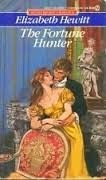 First order of business, I borrowed a stack of books from Nancy Allen. Then I went to my mom's and the library and in that first few weeks I read nearly 30 of them.
First order of business, I borrowed a stack of books from Nancy Allen. Then I went to my mom's and the library and in that first few weeks I read nearly 30 of them.
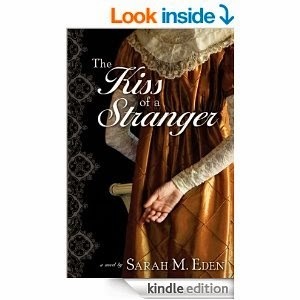
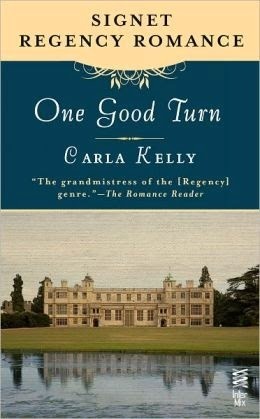
Then I decided I wanted to set my story on the sea, and that led to an entirely new set of questions. Turns out I didn't know the first thing about sailing or the British Navy or life aboard a Man of War.
And apparently there was an actual war I needed to learn about.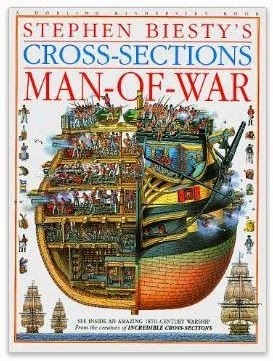
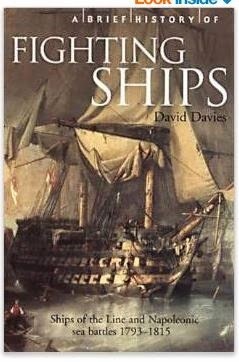
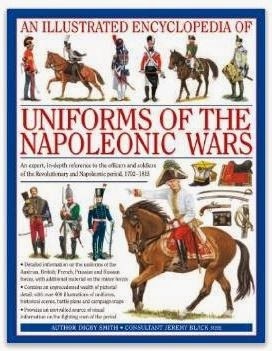
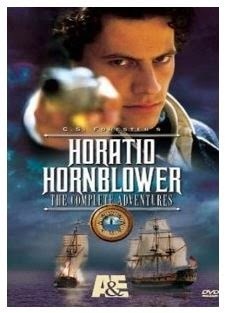
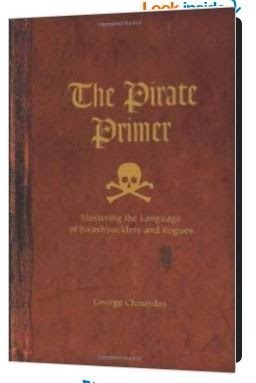
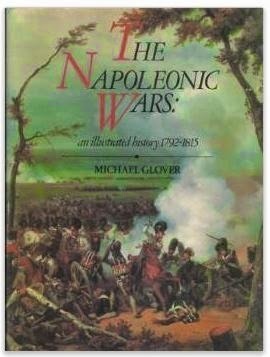
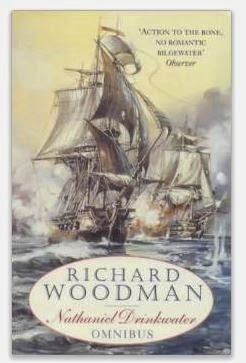
And just because I speak English doesn't mean I had any idea what life was actually like in Nineteenth century Great Britain.

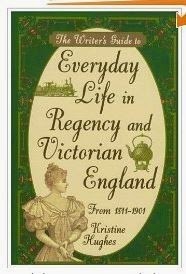

To all of these, I'd have to add hours of library visits where I pored over sea charts, learned how to chart a course--though I couldn't do it to save my life--studied journals, read all the Google docs I could get my hands on, and before Lady Lockwood was finished, I'd read well over sixty books as research. I know, and not one had a vampire in it.
And you know what? Turns out I LOVE it! I love learning about the Napoleonic wars, the muskets, cannons, ships, battles, sieges.
Every bit as fascinating is the history of the time, the customs, the rules of society, the forms of address.
I've made new friends--I loved borrowing books from Carla Kelly--yeah, you heard me. That woman is a research expert. She knew where to find the realistic history instead of just the nice fluffy stuff.
I asked Sarah Eden endless questions about "What if this Lord married this person, and her title was this, now is it this? What about their kids? Why doesn't this make any sense?"
I've loved immersing my characters in history, learning about the real people they would have interacted with and what life was like--the good, pretty ballgowns, and the filthy Orlop deck amputations.
It's all become something that has spurred the desire inside me to know more and to understand more and to write more, because I want everyone to know about the war, and the life at sea, and the hard choices people made. Maybe it's my way of hoping that this little bit of history isn't forgotten.
My friend, Kathy Gordon told me about a year and a half ago that Covenant was looking for Regencies. So, I decided I'd better find out what a Regency is.
 First order of business, I borrowed a stack of books from Nancy Allen. Then I went to my mom's and the library and in that first few weeks I read nearly 30 of them.
First order of business, I borrowed a stack of books from Nancy Allen. Then I went to my mom's and the library and in that first few weeks I read nearly 30 of them.


Then I decided I wanted to set my story on the sea, and that led to an entirely new set of questions. Turns out I didn't know the first thing about sailing or the British Navy or life aboard a Man of War.
And apparently there was an actual war I needed to learn about.







And just because I speak English doesn't mean I had any idea what life was actually like in Nineteenth century Great Britain.



To all of these, I'd have to add hours of library visits where I pored over sea charts, learned how to chart a course--though I couldn't do it to save my life--studied journals, read all the Google docs I could get my hands on, and before Lady Lockwood was finished, I'd read well over sixty books as research. I know, and not one had a vampire in it.
And you know what? Turns out I LOVE it! I love learning about the Napoleonic wars, the muskets, cannons, ships, battles, sieges.
Every bit as fascinating is the history of the time, the customs, the rules of society, the forms of address.
I've made new friends--I loved borrowing books from Carla Kelly--yeah, you heard me. That woman is a research expert. She knew where to find the realistic history instead of just the nice fluffy stuff.
I asked Sarah Eden endless questions about "What if this Lord married this person, and her title was this, now is it this? What about their kids? Why doesn't this make any sense?"
I've loved immersing my characters in history, learning about the real people they would have interacted with and what life was like--the good, pretty ballgowns, and the filthy Orlop deck amputations.
It's all become something that has spurred the desire inside me to know more and to understand more and to write more, because I want everyone to know about the war, and the life at sea, and the hard choices people made. Maybe it's my way of hoping that this little bit of history isn't forgotten.
Published on June 02, 2014 17:07
April 21, 2014
Altered Perceptions
[image error](I stole this cute pic from Rob's FB page)
Many of my friends have heard me talk about my buddy, Rob Wells. Rob suffers from a multitude of mental illnesses that have completely turned his life, and his family's life upside down.
I haven't ever really known anyone with problems like this before, and I have learned so much about what a completely devastating thing it can be to not be in control of one's own brain.
It's been very interesting watching Rob over the past few years as he's figured out ways to adjust to his illness. There have been times that he's bolted from a writing group, saying he needed to leave since he was having a panic attack. I've been to a few retreats with him where he's needed to take a drive and just get away to give himself a little time to get a grip. He also has a dog, Annie who helps to calm him down.
But even though he seems normal and well-adjusted, there are times when he just plain can't deal. One of those times landed him in the hospital psyche ward.
And obviously this sort of thing doesn't help a husband and father to keep a job and take care of his family.
So, that brings us to this anthology. A bunch of Rob's friends are putting together some of our "deleted scenes" and making a lovely book.
My own contribution is a scene from Becoming Lady Lockwood that never actually made it into the book. While I loved it and wanted it there, it didn't really fit anywhere, and it was a little "over the top." It's the scene I originally pictured, where Amelia and William realize that there is a spark between them, during a violent storm at sea. I'm thrilled to be able to release it. And I love the ideas that the other authors have. I've read a few of them. Josi Kilpack originally wrote a hilarious scene to begin Tres Leches Cupcakes, but ended up taking the story in a different direction. Nancy Allen is writing a "prequel" scene where one of her characters that appears as a ghost in her Steampunk Fairytale is murdered. Annette Lyon has a scene from a Finnish fairy tale. Rob's is the ending that we all wanted to Feedback, because the danged thing just left us hanging. Brandon Sanderson--um yeah, I said BRANDON SANDERSON's contribution to the anthology is a few chapters where his character made a different choice in The Way of Kings than he does in the book--how cool is that?
Anyway, these are things you won't see anywhere else, and it's for a good cause, so let's make this happen, m'kay?
https://www.indiegogo.com/projects/al... (that's the link)
And Dan Wells explains the entire thing really perfectly. Here's the link to that: http://www.fearfulsymmetry.net/
Many of my friends have heard me talk about my buddy, Rob Wells. Rob suffers from a multitude of mental illnesses that have completely turned his life, and his family's life upside down.
I haven't ever really known anyone with problems like this before, and I have learned so much about what a completely devastating thing it can be to not be in control of one's own brain.
It's been very interesting watching Rob over the past few years as he's figured out ways to adjust to his illness. There have been times that he's bolted from a writing group, saying he needed to leave since he was having a panic attack. I've been to a few retreats with him where he's needed to take a drive and just get away to give himself a little time to get a grip. He also has a dog, Annie who helps to calm him down.
But even though he seems normal and well-adjusted, there are times when he just plain can't deal. One of those times landed him in the hospital psyche ward.
And obviously this sort of thing doesn't help a husband and father to keep a job and take care of his family.
So, that brings us to this anthology. A bunch of Rob's friends are putting together some of our "deleted scenes" and making a lovely book.
My own contribution is a scene from Becoming Lady Lockwood that never actually made it into the book. While I loved it and wanted it there, it didn't really fit anywhere, and it was a little "over the top." It's the scene I originally pictured, where Amelia and William realize that there is a spark between them, during a violent storm at sea. I'm thrilled to be able to release it. And I love the ideas that the other authors have. I've read a few of them. Josi Kilpack originally wrote a hilarious scene to begin Tres Leches Cupcakes, but ended up taking the story in a different direction. Nancy Allen is writing a "prequel" scene where one of her characters that appears as a ghost in her Steampunk Fairytale is murdered. Annette Lyon has a scene from a Finnish fairy tale. Rob's is the ending that we all wanted to Feedback, because the danged thing just left us hanging. Brandon Sanderson--um yeah, I said BRANDON SANDERSON's contribution to the anthology is a few chapters where his character made a different choice in The Way of Kings than he does in the book--how cool is that?
Anyway, these are things you won't see anywhere else, and it's for a good cause, so let's make this happen, m'kay?
https://www.indiegogo.com/projects/al... (that's the link)
And Dan Wells explains the entire thing really perfectly. Here's the link to that: http://www.fearfulsymmetry.net/
Published on April 21, 2014 07:56
March 8, 2014
So, why all the tears?
 I just finished my sixth novel. And by finished, I mean completed the first draft. There’s still a long way to go.So why am I blubbering tears and snot all over my laptop in a humiliating, hiccup-y, ugly cry?This is the sixth time I have wondered that very thing. In Jr. High, I was in a production of “A Midsummer’s Night’s Dream.” I remember the hours of rehearsals, memorizing lines, costuming and then finally presenting onstage. After it was over, a lot of the cast cried. Why did we do this? We weren’t disappointed in our performance. We all knew that it would end, and yet, being involved so deeply in something for months at a time had made it part of our lives. We cared about it and worked hard and formed a bond with the material and with each other that was strangely sad once the curtain dropped for the last time.That is the closest thing to explaining why mascara tears are dripping off my chin.Do artists feel this way when they finish a painting? Do wedding planners feel like this when their giant assignment is over and the happy couple rides away? I don’t know. But I imagine they do.A cry could just be cathartic after a project ends. But I wonder if it is something more.A writer invests herself so deeply in a story, researching, digging deep into her characters’ past, emotions, relationships, and working for months to make them come alive. And then, just when they’ve started to grow on you, when you’ve figured out how their story ends, they don’t need you anymore. It’s time to move on to the next thing. And the entire process was so overwhelming and difficult. Pouring your heart into the pages, and then hating it, deleting and pouring again. Reading, re-reading, polishing, cutting, re-writing, and hoping it’s your best work, then sending it off to an editor, and she takes a turn.And this time for some reason, it strikes a little deeper as my oldest son is preparing to leave home. Just when he’s starting to grow on me, when I’m starting to understand his quirks and when he’s not an obnoxious teenager anymore, but sort of a fun friend, he doesn’t need me anymore. And it’s time for him to move on. And I wish I could backspace to when he was smaller, or delete all the dumb scenes where I was an underdeveloped character. But deep down, I am happy and proud and I know the world will be better with him in it. And I hope they will be gentle in their critiques, because I am sending in my best work.
I just finished my sixth novel. And by finished, I mean completed the first draft. There’s still a long way to go.So why am I blubbering tears and snot all over my laptop in a humiliating, hiccup-y, ugly cry?This is the sixth time I have wondered that very thing. In Jr. High, I was in a production of “A Midsummer’s Night’s Dream.” I remember the hours of rehearsals, memorizing lines, costuming and then finally presenting onstage. After it was over, a lot of the cast cried. Why did we do this? We weren’t disappointed in our performance. We all knew that it would end, and yet, being involved so deeply in something for months at a time had made it part of our lives. We cared about it and worked hard and formed a bond with the material and with each other that was strangely sad once the curtain dropped for the last time.That is the closest thing to explaining why mascara tears are dripping off my chin.Do artists feel this way when they finish a painting? Do wedding planners feel like this when their giant assignment is over and the happy couple rides away? I don’t know. But I imagine they do.A cry could just be cathartic after a project ends. But I wonder if it is something more.A writer invests herself so deeply in a story, researching, digging deep into her characters’ past, emotions, relationships, and working for months to make them come alive. And then, just when they’ve started to grow on you, when you’ve figured out how their story ends, they don’t need you anymore. It’s time to move on to the next thing. And the entire process was so overwhelming and difficult. Pouring your heart into the pages, and then hating it, deleting and pouring again. Reading, re-reading, polishing, cutting, re-writing, and hoping it’s your best work, then sending it off to an editor, and she takes a turn.And this time for some reason, it strikes a little deeper as my oldest son is preparing to leave home. Just when he’s starting to grow on me, when I’m starting to understand his quirks and when he’s not an obnoxious teenager anymore, but sort of a fun friend, he doesn’t need me anymore. And it’s time for him to move on. And I wish I could backspace to when he was smaller, or delete all the dumb scenes where I was an underdeveloped character. But deep down, I am happy and proud and I know the world will be better with him in it. And I hope they will be gentle in their critiques, because I am sending in my best work.So, today I will just allow myself a little more time to cry slurpy ugly tears. And feel the weird mixture of pride and sorrow that I can’t explain.
Published on March 08, 2014 13:16
November 15, 2013
Timeless Romance European Collection
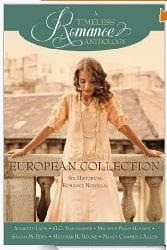
Short stories aren't typically my thing. They are often unsatisfying, and usually have sad endings. And who am I kidding? I want to read a romance. That is why I have come to love the Timeless Romance Anthologies. Each story is the perfect length for a bubble bath or before bedtime read. The authors are all amazing at creating characters that I connect with, and after an hour sigh contentedly as they've fallen in love.
I particularly like this collection. Historical vacation stories. There is a sweet and humorous story about a married couple. A suspenseful battle in Finland, a delicious Venetian masquerade ball, a heartbroken earl, a New York socialite, and a Regency marriage of convenience.
What more could a girl want?
Published on November 15, 2013 21:13



